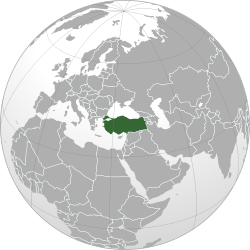NATO and the new Turkey
By Sinan Ulgen (chinadaily.com.cn)
ISTANBUL – Turkey joined NATO at the beginning of the Cold War to gain United States protection in the event of a Soviet attack. Back then, Turkey was clearly on the frontline; today, however, its leaders are assertively pursuing an independent foreign and security policy, and their growing confidence is now testing the Alliance’s cohesion.
Meanwhile, cooperation between NATO and the European Union remains stalled, owing to the dispute with Turkey over divided Cyprus. Moreover, in sharp contrast to the majority of NATO members, Turkey maintains that Iran and Syria should not be viewed as threats. And, at the height of the Libyan crisis, while NATO officials were preparing operational plans to intervene, Turkey’s Prime Minister Recep Tayyip Erdoğan was speaking out against military action.
As a result, some now say that Turkey is turning its back on the West. But it would be more accurate to say that Turkey is broadening its reach. Turkey may indeed cause tensions within NATO, but its position represents an astute balance between loyalty to the Alliance and appropriate regard for its own national interests.
Geopolitical changes like the end of the Cold War and, lately, the push for democracy in the Middle East, along with the desire to have “zero problems” with Turkey’s neighbors, have created new objectives for Turkish foreign-policy strategists. Indeed, Turkey’s leaders are downgrading the importance of “hard power” security issues in favor of enhancing the country’s soft power while also grasping economic opportunities.
A primary consequence of this “de-securitization” of Turkish foreign policy has been an altered balance of power between the country’s military and civilian establishments. A no less important consequence is the changed relationship between Turkey and the West.
In years past, defense partnership constituted a pillar of Turkey’s relations with the West. But it was an asymmetrical relationship, in which Turkey, as a consumer of security, was largely dependent on the West. Turkey’s foreign-policy choices were constrained by the need to remain aligned with its security provider.
Nowadays, however, declining threat perceptions have fundamentally altered this perspective, and reduced Turkey’s need to act in unison with the West. Moreover, Turkey’s shrinking pre-occupation with its territorial integrity has significantly diminished the West’s leverage. The loosening of the security relationship has given Turkey greater latitude in foreign policy.
via NATO and the new Turkey.


Leave a Reply